Vowel Recognition Vowels Worksheets for Ages 3-9
22 filtered results
-
From - To
Unlock essential early literacy skills with our "Vowel Recognition Worksheets for Ages 3-9." Expertly designed for young learners, these printable worksheets guide children through mastering vowel sounds, a cornerstone of reading and writing. Each activity combines fun illustrations with practical exercises to keep kids engaged while they identify, trace, and pronounce vowels. Whether for preschoolers or early elementary students, our worksheets cater to various learning levels, ensuring each child progresses confidently. Perfect for home or classroom use, these resources foster a love for learning and lay a strong foundation for future literacy success. Download, print, and watch your child's skills soar!
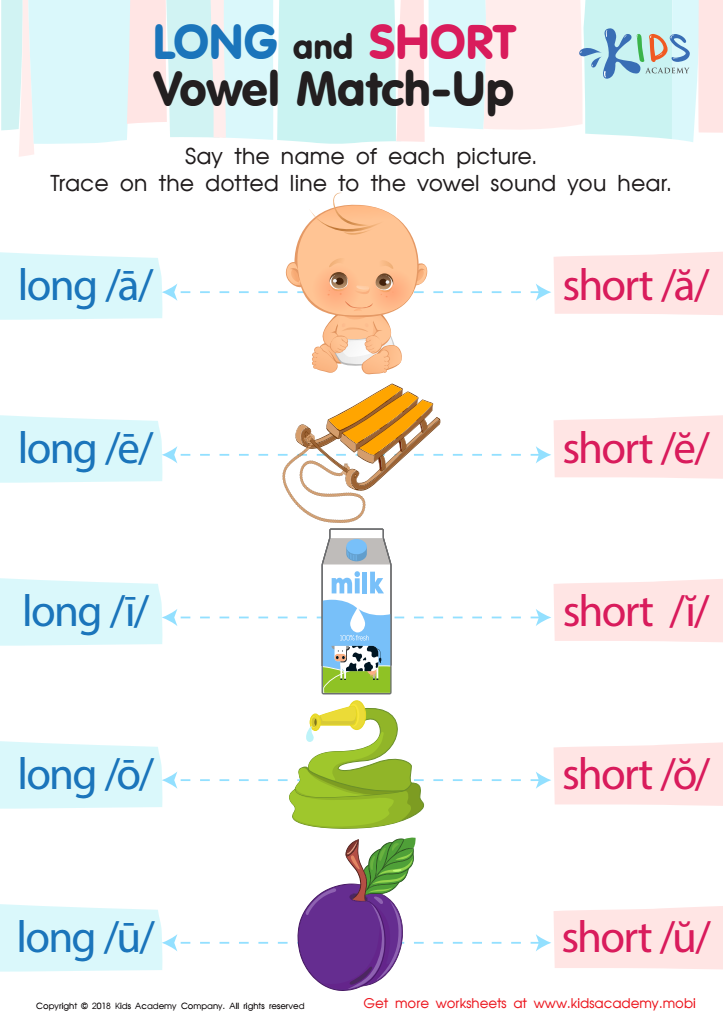

Long and Short Vowel Match up Reading Worksheet


Let's Check Long Vowels: Assessment Worksheet
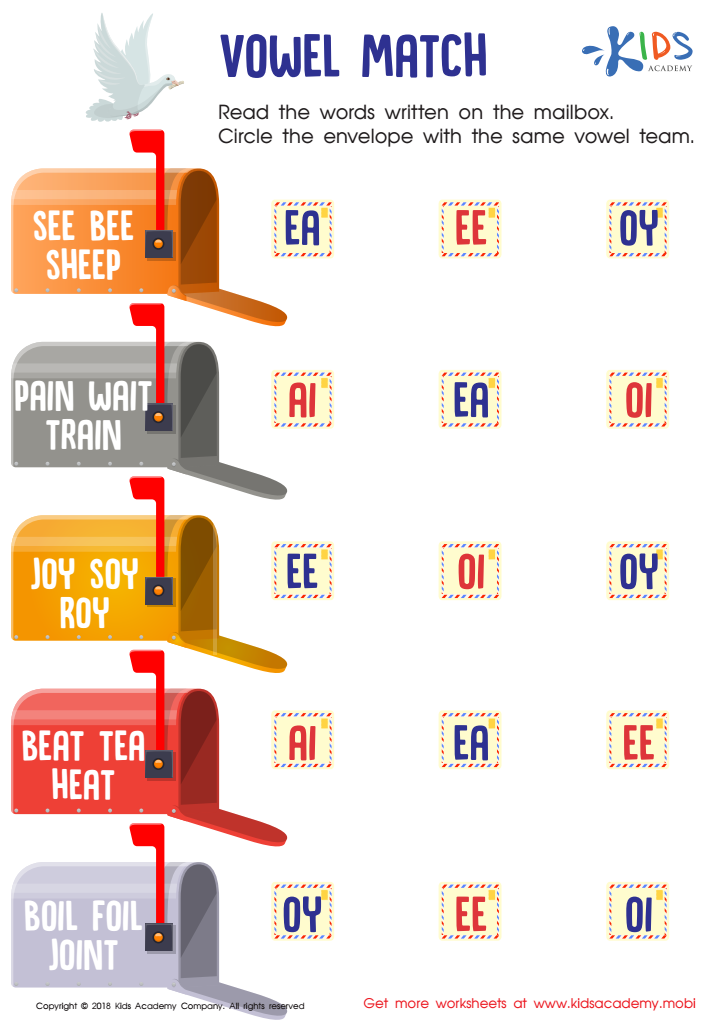

Vowel match Worksheet
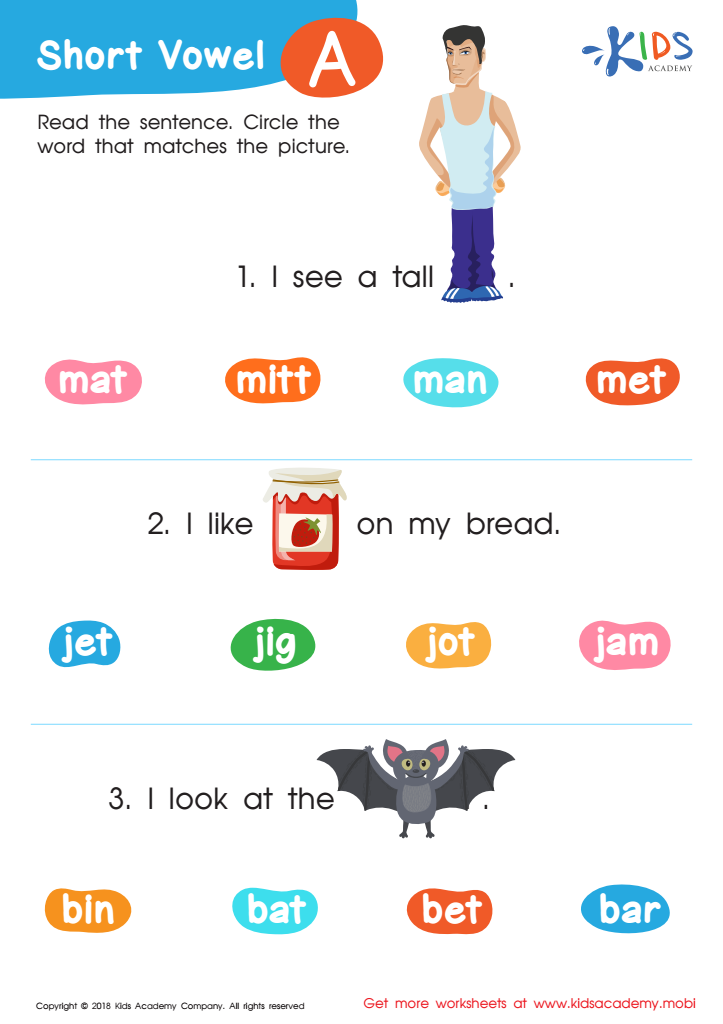

Short Vowel /a/ Worksheet
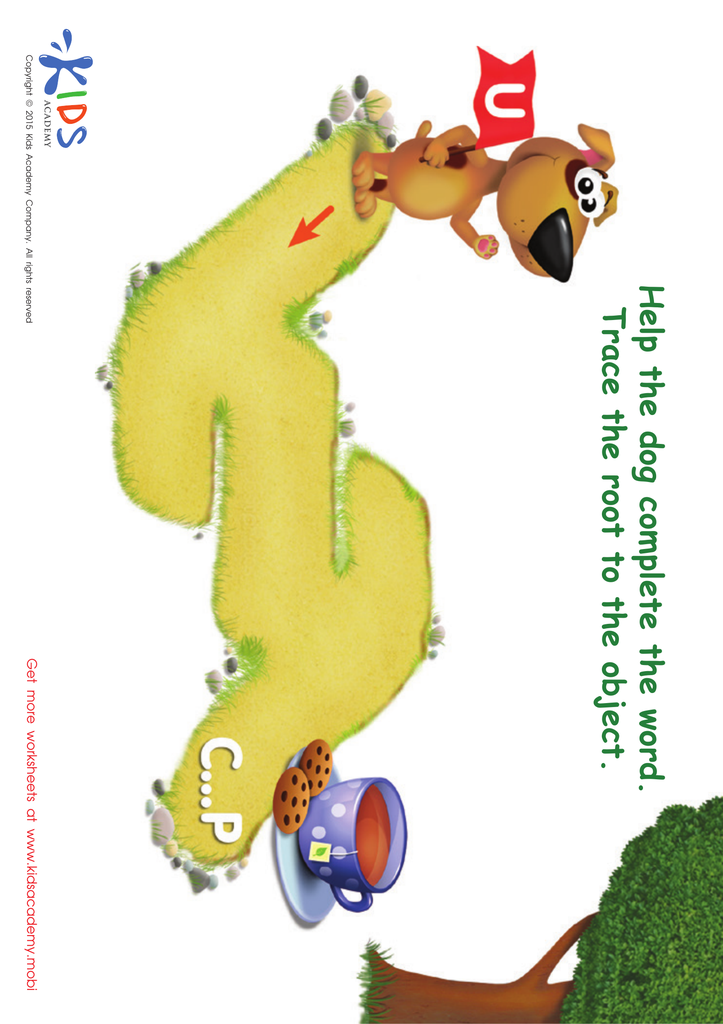

Short Vowel Sound U Worksheet Worksheet
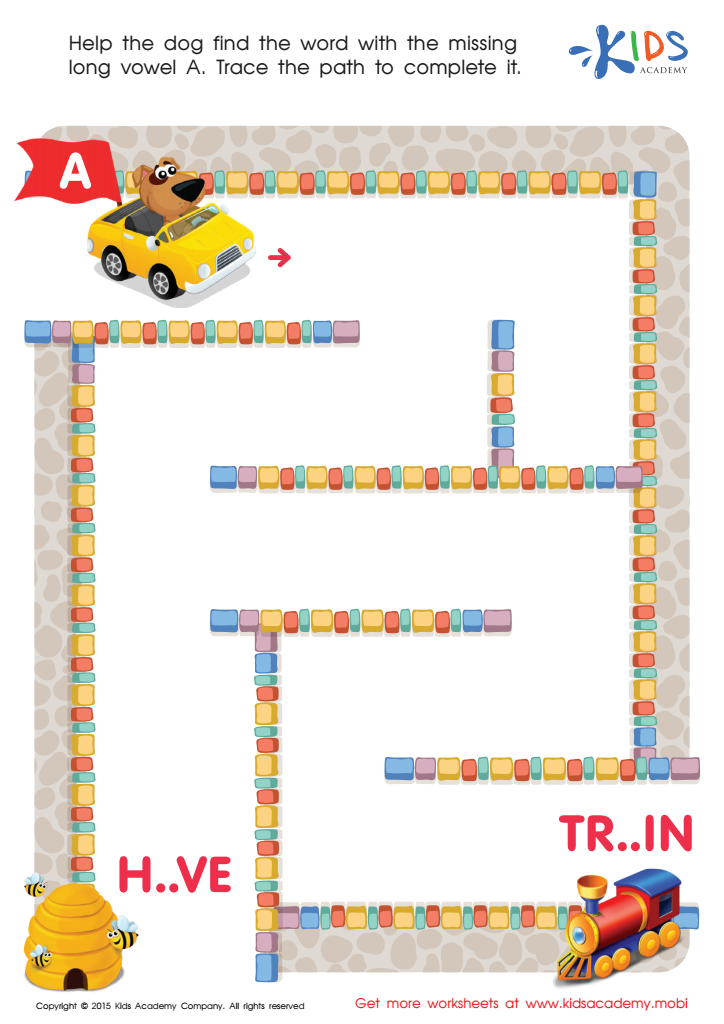

Long Vowel Sound A Worksheet


Short Vowels /e/, /i/, and /u/ Worksheet
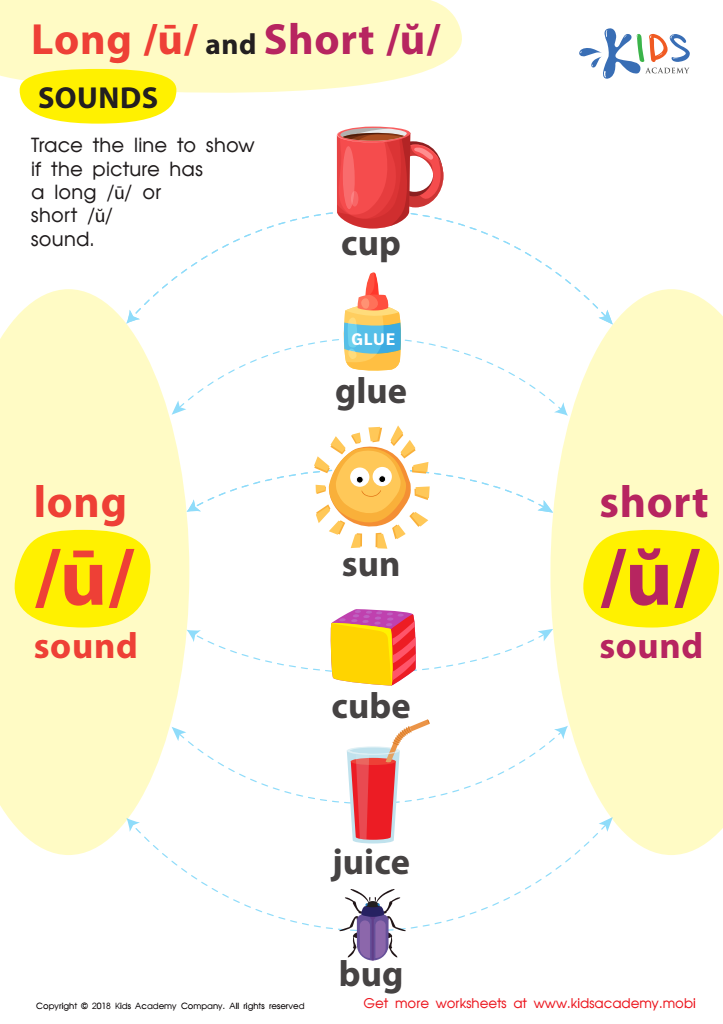

Reading: Long U and Short U Sounds Worksheet


Long Vowel Maze /o/ and /i/ Worksheet
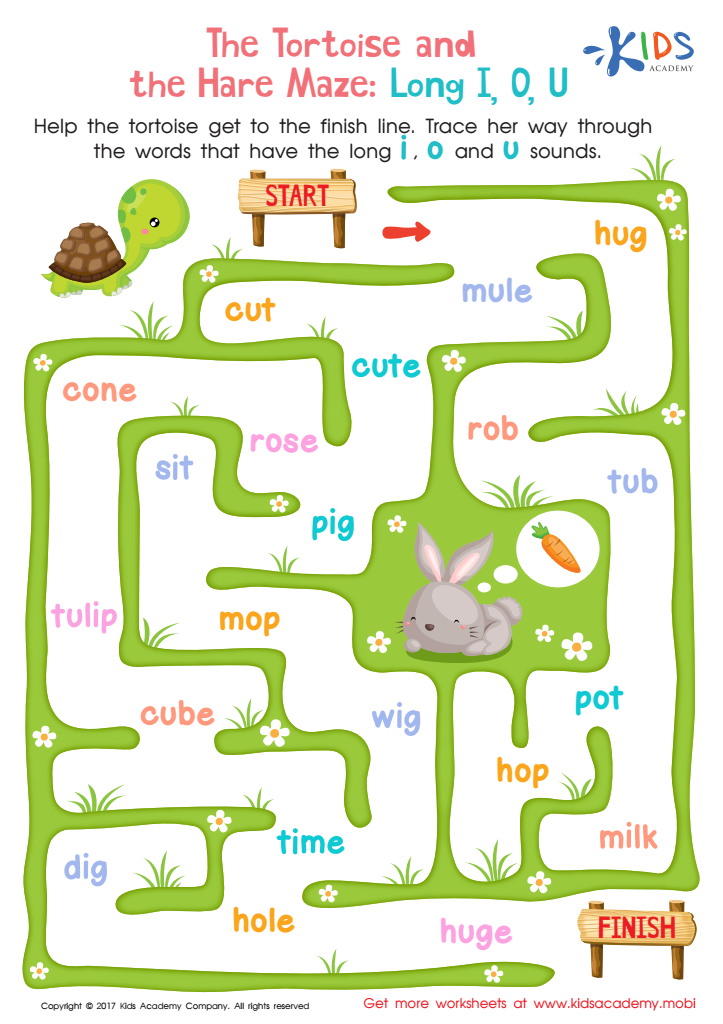

Long I, O, U Words Worksheet
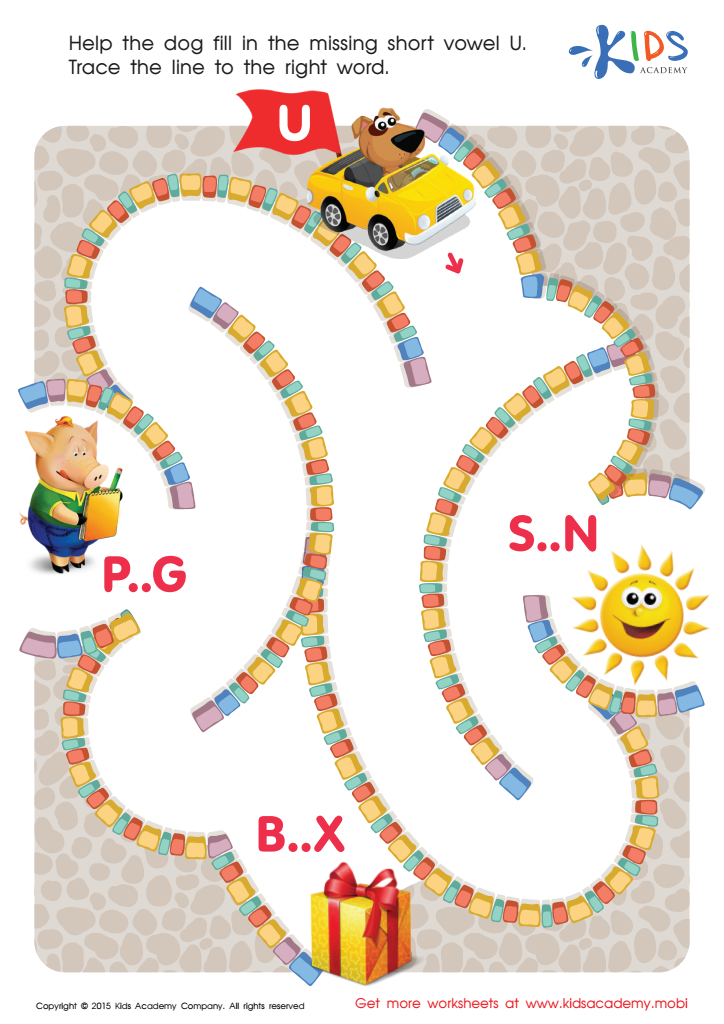

Short Vowel Sound U Worksheet


Short Vowel Eggs Worksheet
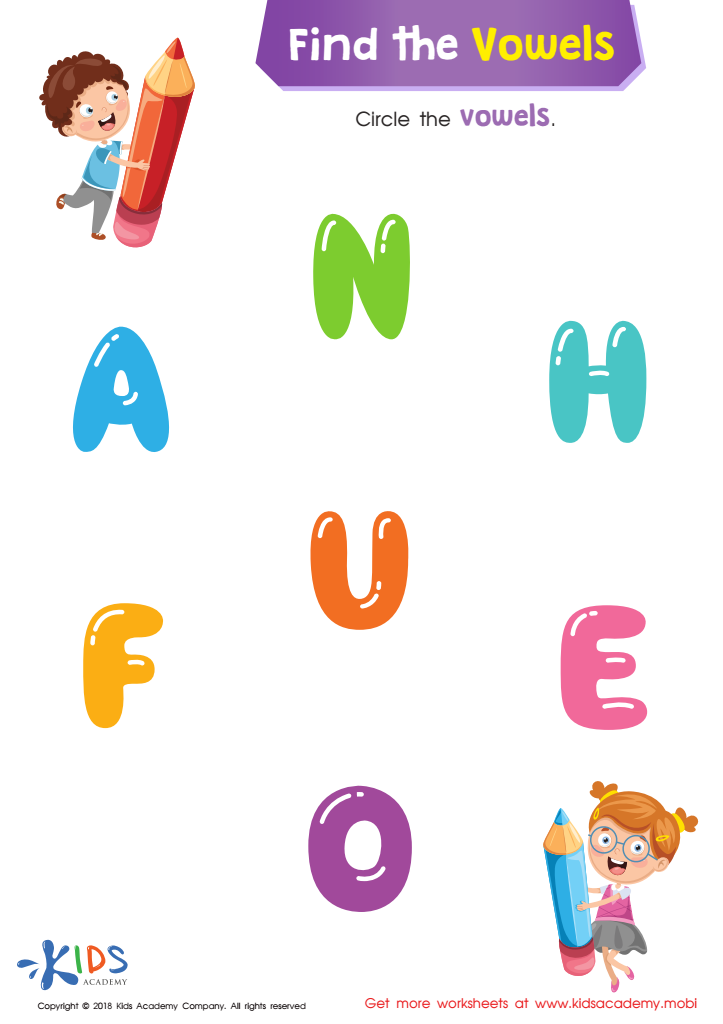

Find the Vowels Reading Worksheet
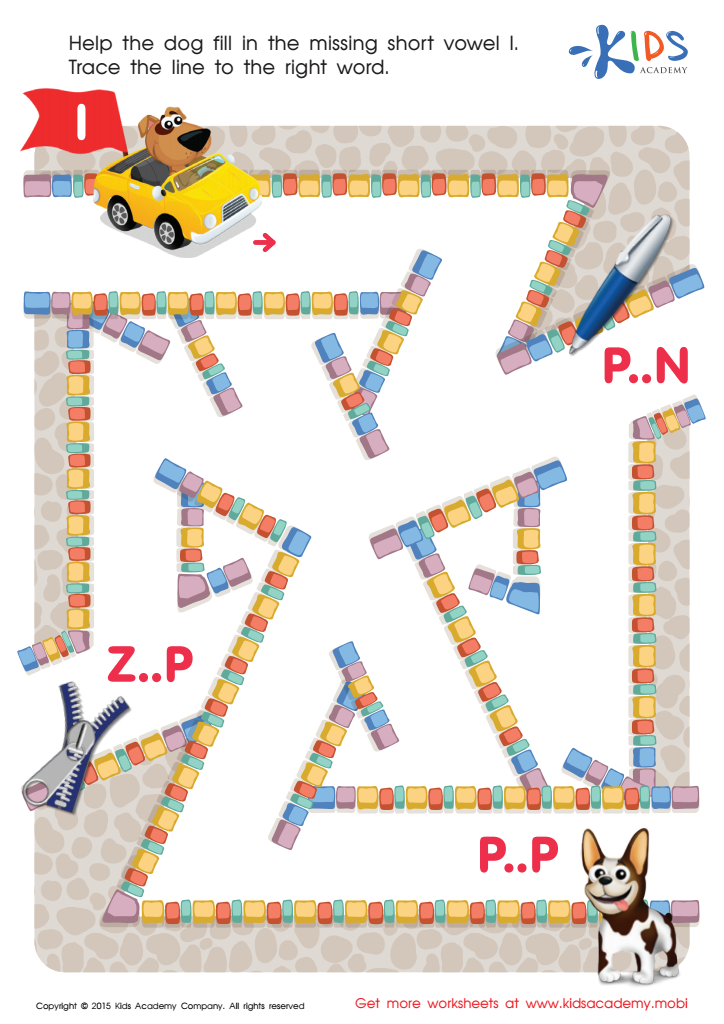

Short Vowel Sound I Worksheet
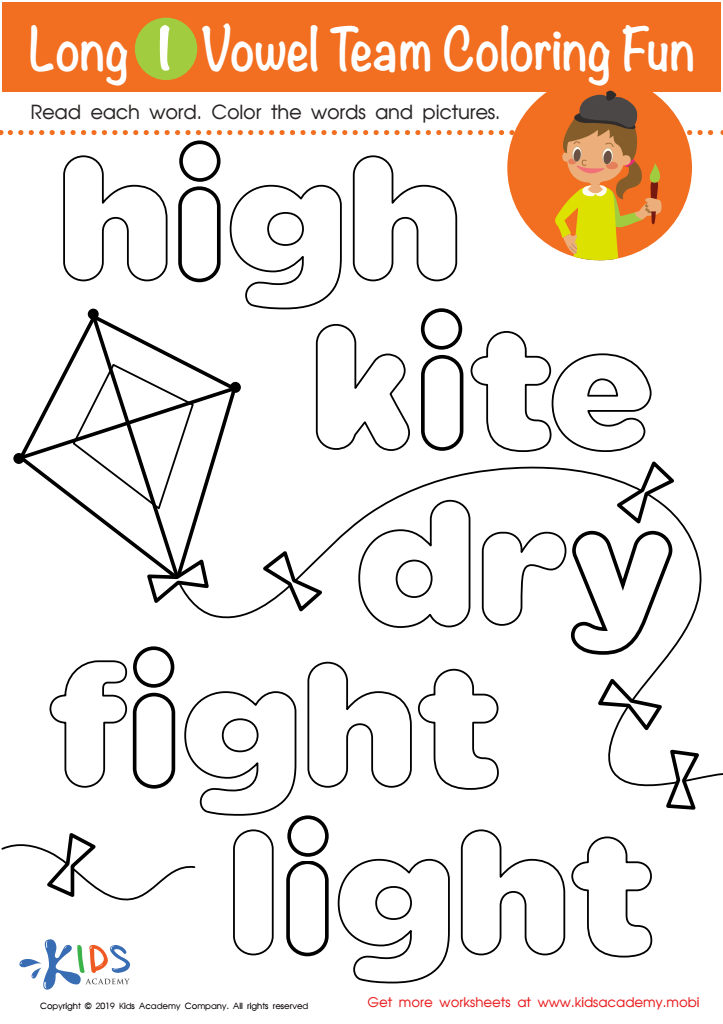

Long I Vowel Team Coloring Worksheet
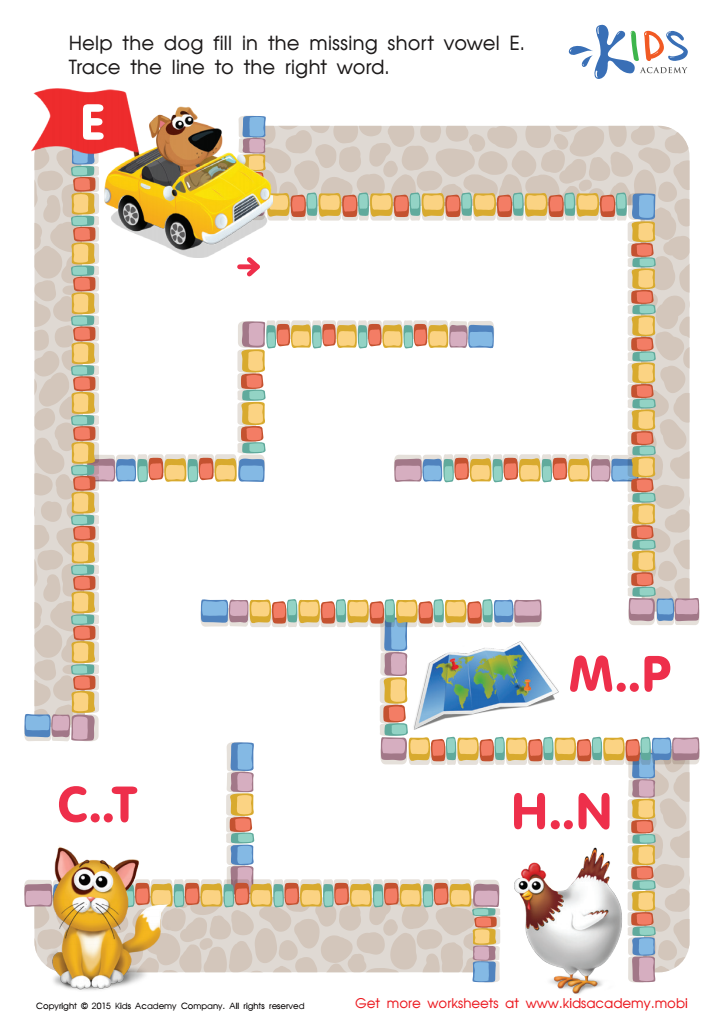

Short Vowel Sound E Worksheet
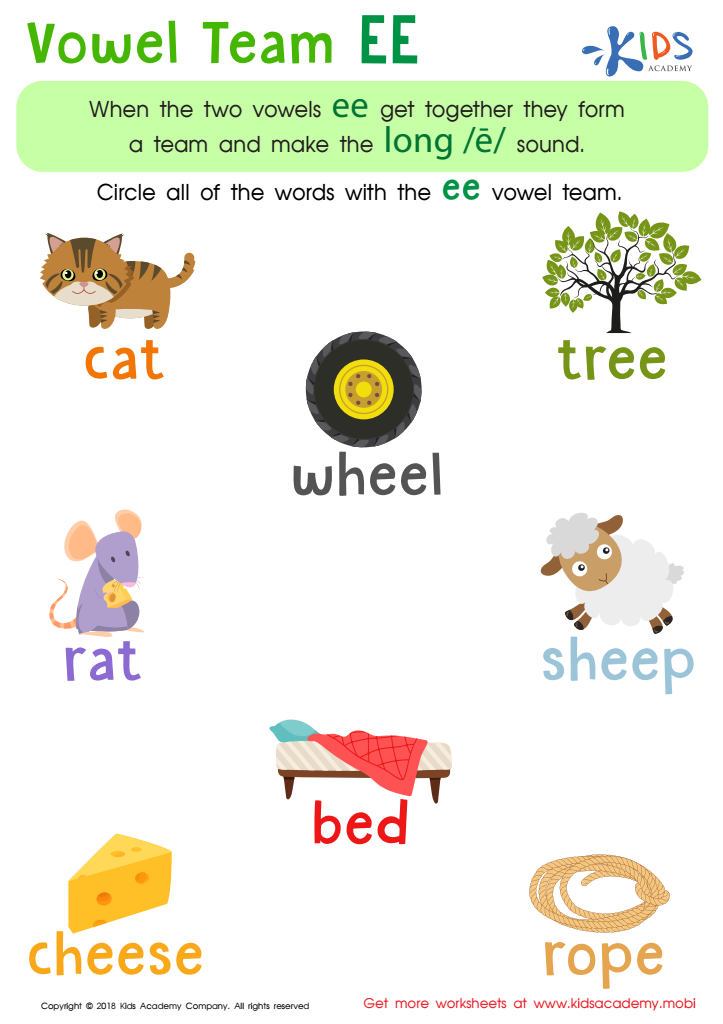

Reading: Vowel Team EE Worksheet
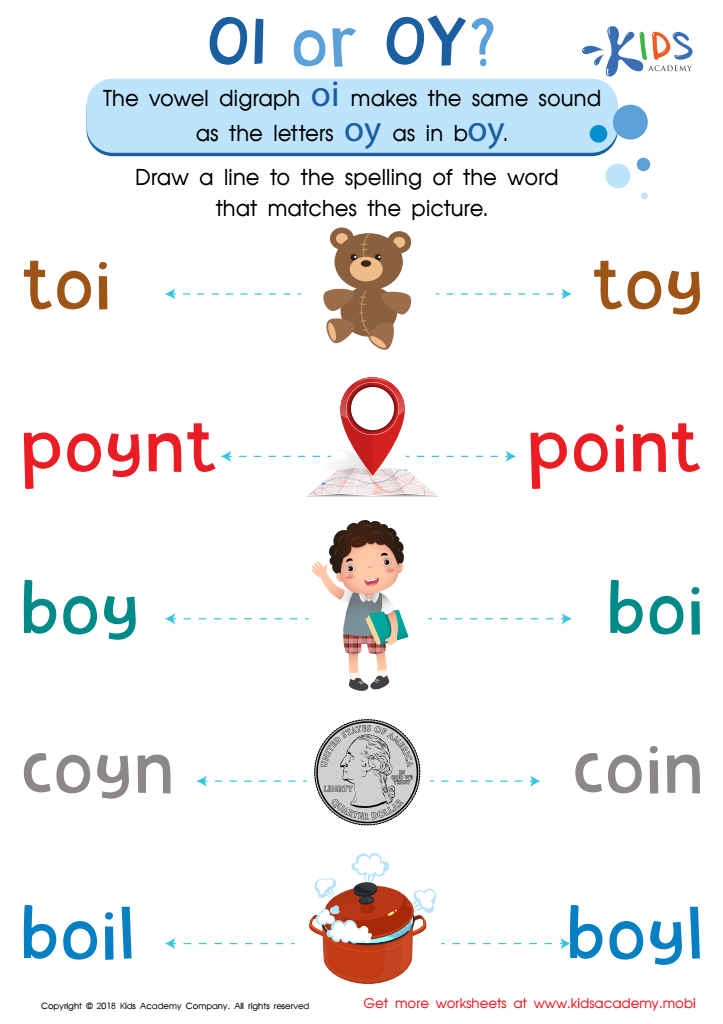

Reading: OI and OY Worksheet
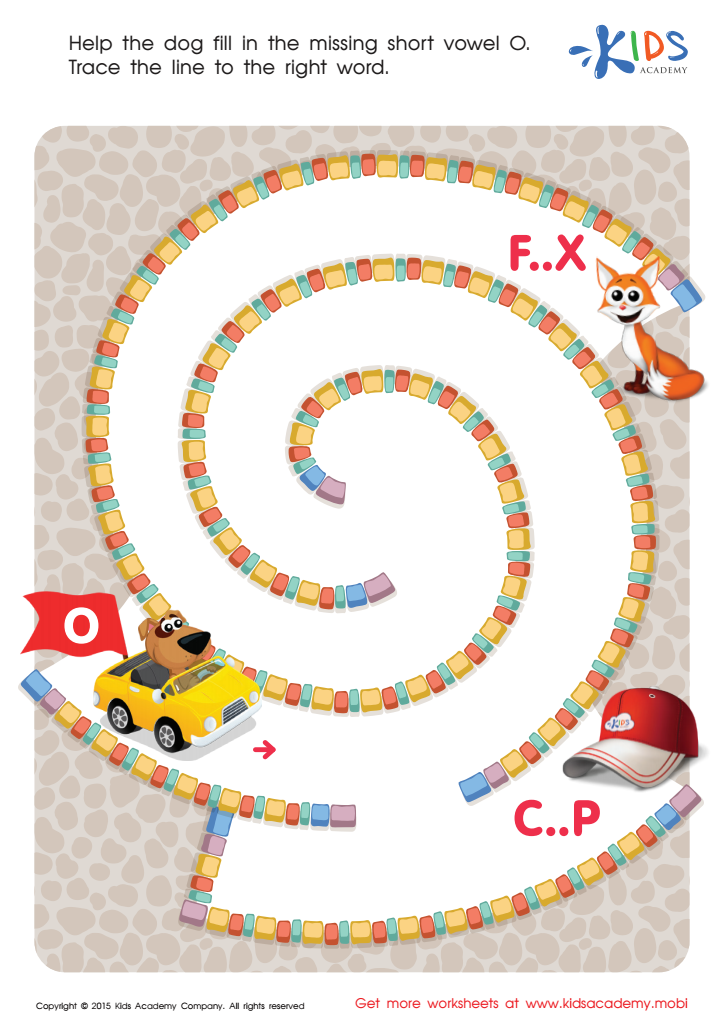

Short Vowel Sound O Worksheet


Long and Short Vowel Sentences: Assessment Worksheet
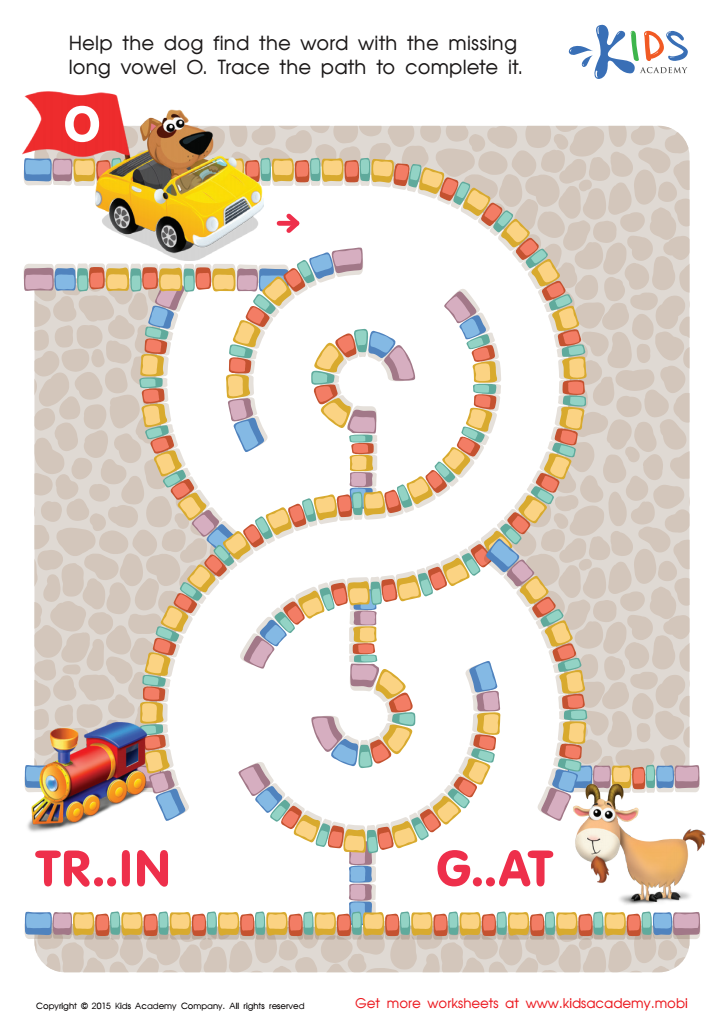

Long Vowel Sound O Worksheet
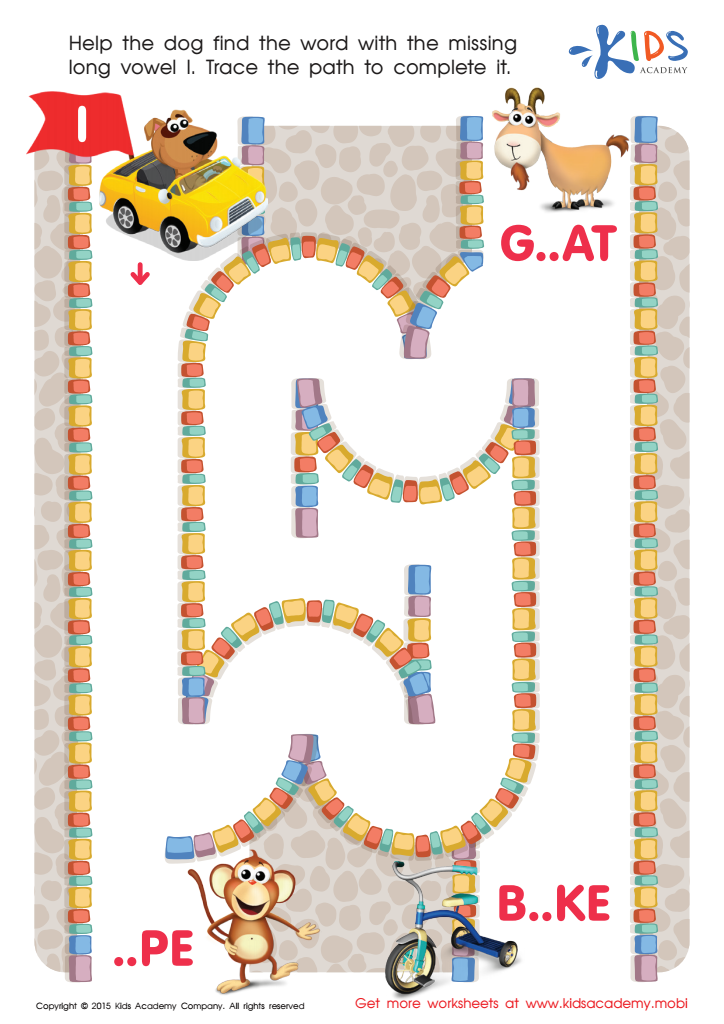

Long Vowel Sound I Worksheet
Vowel recognition is fundamental for young learners aged 3-9 as it sets the foundation for proficient reading and writing skills. During these early years, children's brains are highly adaptable and primed for language acquisition. Recognizing vowels is crucial because vowels are the building blocks of syllable construction, and nearly every word contains at least one vowel. This means that understanding vowels impacts a child's ability to decode words, a skill essential for reading fluency.
For parents and educators, emphasizing vowel recognition helps in developing phonemic awareness—an understanding of how sounds work in words. When children can identify and distinguish between different vowel sounds, they are better able to blend these with consonants, making word formation and spelling easier. For example, learning the short and long sounds of vowels like 'a' in "cat" and "cake" demystifies the multitudinous phonetic possibilities of the English language.
Moreover, early mastery of vowel sounds supports better comprehension and expressive skills. Children who easily recognize vowel sounds are more likely to read with accuracy and confidence, which leads to a more positive attitude towards reading and learning. Effective vowel recognition not only aids in achieving literacy milestones but also lays the groundwork for academic success across all subjects, making it an area that warrants focused attention from both parents and educators.
 Assign to My Students
Assign to My Students















